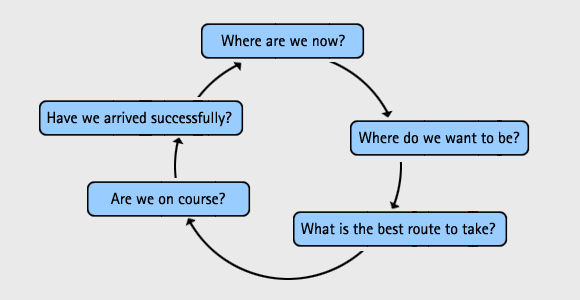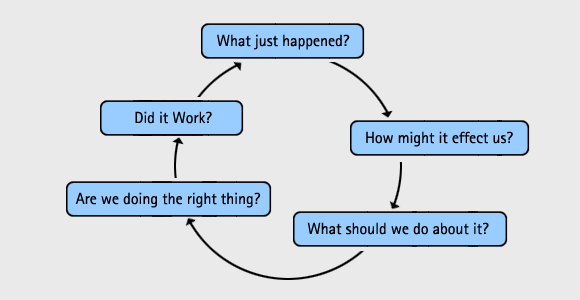| The following illustration should serve to make
it clear what we mean by Marketing planning.
Imagine you are thinking of going on a car journey. You could
just jump in the car, start the engine and drive off. This would
probably be fine if it were a familiar journey you were undertaking,
perhaps one you do regularly like from home to your office. But
what if the journey was a new one, involving long distances with
many different possible routes and you were simply not sure of
the directions? You might use a route-planner like the one provided
by the AA.
Marketing departments are involved in both of these kinds of
'journeys' as they plan for the future, but Marketing Planning
becomes vital because many of the tasks for marketing departments
are similar to the longer more complex and less certain journeys.
This is because:
- marketing departments are dealing with lots of issues outside
of their control (like customers and competitors);
- marketing departments are looking ahead to forthcoming events
and issues where things are uncertain;
- marketing departments are increasingly considered to be the
place where innovations start. That is, where new things are
tried out. You can find out about innovation at www.thetech.org.
Before starting out on a long, complicated journey a wise course
of action is to consider the possible routes available. Once you
know what your options are you then need to weigh them up. Which
is the fastest? Which the most scenic? Which is likely to include
potential hazards? Which is the safest?
Of course this analogy (story) also assumes that you know where
you are starting from? For a car journey it might be obvious,
but for companies it is important to understand your current position
otherwise decisions about the future are likely to be based on
a mistaken understanding of the present.
All of the above can quite easily be related to a business who
are in many ways 'journeying into the future' as they strive to
survive and prosper. The preparation before starting out and the
monitoring of progress once you are on your way is what marketing
planning is really all about.
A very straightforward series of questions called 'the planning
cycle' summarises the above section well. These sorts of questions
are asked in each planning period -often 1 year for short term
and up to 10 years for long term planning.
| Figure 3.1 Traditional planning
cycle |
|
 |
 |
| Heather
Moore, Marketing and Promotions Officer
Marwell Zoo, Hampshire |
|
 |
Marketing Planning is therefore a sequence of activities that
result in the setting of marketing objectives, the formulation
of a plan to meet them, the carrying out of the plan and a system
of checks to increase the chances of success. All to often a company
that fails to plan properly finds itself in a very different sort
of cycle. This is a much less satisfactory situation
| Figure 3.2 Reactive planning
cycle |
|
 |
|

